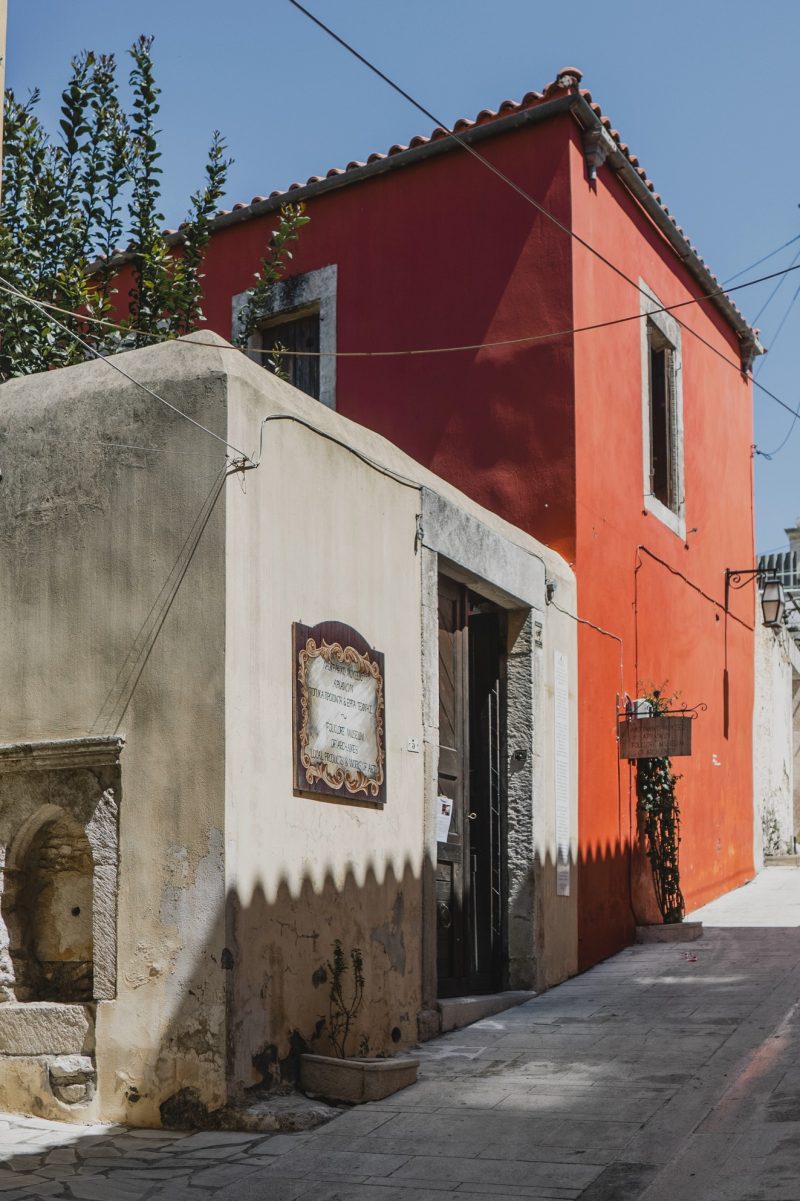

20°C
The Folklore and Historical Museum of Archanes, also known as “Mansion of Archanes”, is housed in an imposing two-story building dating from 1771, which has been fully restored to preserve its original character. The museum operates as an “open museum”, offering the visitor a unique experience of getting to know the way of life and cultural tradition of Archanes.
The museum collections are naturally developed in the rooms of the mansion: the paved courtyard, the traditional kitchen, the large living room and the bedroom. Valuable works of art are exhibited, including religious icons, paintings of historical significance, hand embroidery and sculptures, covering the period from the 18th to the 20th century.
Special emphasis is placed on the presentation of traditional Archaic and Cretan costumes and elaborate jewelry, which highlight the rich cultural heritage of Crete. The bedroom area authentically depicts the domestic life of the period, while the “good living room” presents the aesthetics and social projection of wealthy families.
The kitchen of the mansion displays old household equipment, while the agricultural tools area displays authentic examples of pre-industrial agriculture. The museum highlights Archanes’ timeless relationship with the land, art, and everyday life, offering visitors an authentic, experiential tour of the region’s historical and cultural identity.
*The photos are sourced from the official website of the museum.
Museum
Historical, Popular Culture
5 Agios Nikolaos Street, Epano Archanes, Heraklion
+30 2810752194
Tuesday – Sunday: 11:00 – 20:00
Monday: Closed
For the Rural Greece accessibility is fundamental to enhancing an inclusive tourism experience. Following the principles of inclusion and equality, the epaithros Rural Tourism Network and its member businesses are constantly working to enhance the tourism services provided, ensuring that all visitors have the opportunity to experience the authentic beauty of the Greek countryside.
Sustainability in tourism refers to a way of developing tourism that respects and protects the environment while strengthening the local economy and preserving cultural traditions. The aim of sustainable tourism is to provide unique and authentic experiences for visitors without harming the natural and social environment, while ensuring that local communities benefit from tourism activity.
This type of tourism is based on three pillars:
With sustainable tourism, visitors can have authentic experiences, knowing that the impact of tourism on the region is positive and lasting for future generations.
For Rural Greece, localism is one of the most important factors for the development of sustainable tourism, as it promotes a strong link between the tourism product and the local society, economy and culture. Through localism, visitors get the opportunity to explore authentic elements of the destination, such as local products, traditions and culture. This not only boosts the local economy, but also helps to sustain and strengthen local businesses, creating new jobs and supporting the development of local communities.
Furthermore, localism contributes to the sustainability of the tourism sector, as it reduces the use of resources from other regions and encourages the use of local goods and services, reducing the ecological footprint of tourism activities. Thus, integrating localism into tourism practices enhances sustainability awareness, both among visitors and local businesses, creating a more responsible and sustainable tourism destination.